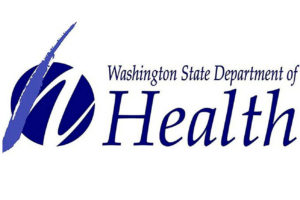Health Officials Share Coronavirus Prevention Information
****John Hopkins Global Case Tracker****
Health officials with the Centers for Disease Control and Prevention (CDC) and Washington State Department of Health announced the first case in the United States of a person infected with the 2019 Novel Coronavirus in Washington State on January 21.
The patient recently returned from Wuhan City, Hubei Province, China, where an outbreak of 2019 novel coronavirus has been ongoing since December.
According to the Grant County Health District, the risk to the general public is considered to be low, given that there is only one case identified in Washington and there is not yet evidence of sustained person to person transmission.
While there are no cases reported in Grant County, health officials are emphasizing the importance of education in efforts to prevent the spread of viruses. Below are recommendations from the Washington State Department of Health:

Novel Coronavirus Outbreak 2020
Who is at risk for novel coronavirus?
Currently, the risk to the general public is low. At this time, there are a small number of individual cases in the U.S. To minimize the risk of spread, health officials are working with healthcare providers to promptly identify and evaluate any suspected cases.
Travelers to and from certain areas of the world may be at increased risk. See wwwnc.cdc.gov/travel for the latest travel guidance from the CDC.
How is it spread?
Human coronaviruses most commonly spread from an infected person to others through:
- The air by coughing and sneezing
- Close personal contact, such as touching or shaking hands
- Touching an object or surface with the virus on it, then touching your mouth, nose, or eyes before washing your hands
- Rarely, fecal contamination
What are the symptoms?
People who have been diagnosed with novel coronavirus have reported symptoms that may appear in as few as 2 days or as long as 14 days after exposure to the virus:
Symptoms of coronavirus may include:
- Fever
- Difficulty breathing
- Cough
- Sore throat
- Runny nose
- Headache
- A general feeling of being unwell
How can people protect themselves?
There are steps people can take to reduce their risk of getting any viral respiratory infections. These include:
- Wash your hands often with soap and water for at least 20 seconds
- Avoid touching your eyes, nose, or mouth with unwashed hands
- Avoid close contact with people who are sick
- Avoid close contact with others
- Cover your mouth and nose with a tissue when you cough or sneeze, then throw the tissue in the trash and wash your hands
- Clean and disinfect objects and surfaces
It is also important for people to stay at home away from others if they are sick.
What is the treatment?
There are no specific treatments for illnesses caused by human coronaviruses. Most people with common human coronavirus illness will recover on their own. However, you can do some things to relieve your symptoms, including:
- Take pain and fever medications (caution: do not give aspirin to children)
- Use a room humidifier or take a hot shower to help ease a sore throat and cough
- If you are mildly sick, you should drink plenty of liquids, stay home and rest
How to Stay Informed
The Washington State Department of Health has established a call center to address questions from the public. If you have questions about what is happening in Washington state, how the virus is spread, and what to do if you have symptoms, please call 1-800-525-0127 and press #.
Additional Resources:

